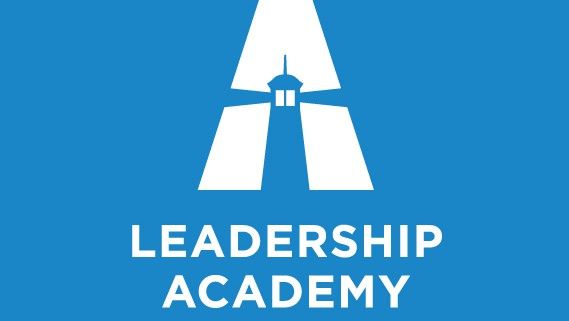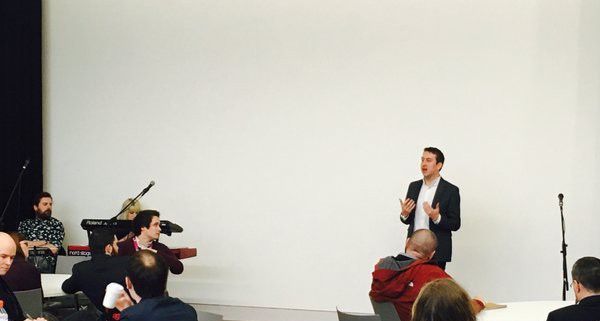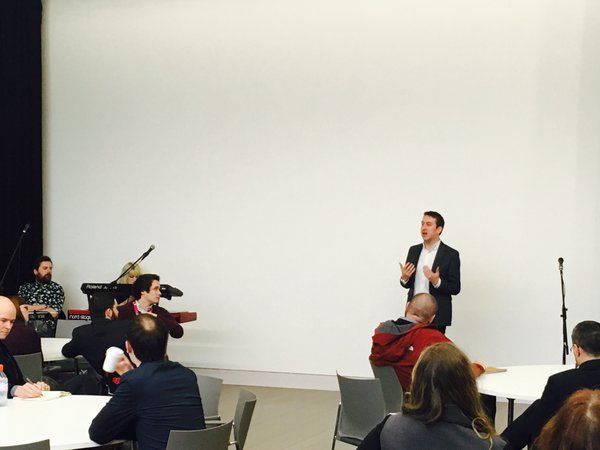A new report into the Music Unite project has shown how music can unify people, address alienation and challenge stereotypes.
The report by Professor John Brewer and Dr Francis Teeney from the Senator George J. Mitchell Institute for Global Peace, Security and Justice, (Queen’s University Belfast) has been published by the Centre for Democracy and Peace Building (CDPB).
The report specifically examines the Music Unite pilot project developed by CDPB in partnership with Beyond Skin.
The project gave the Shankill Road Defenders Flute Band the opportunity to meet and exchange ideas and genres with musicians from other backgrounds and cultures, develop new skills and challenge stereotypes associated with the Loyalist bands.
Junior Minister Emma Little Pengelly said:
“Tonight’s showcase clearly demonstrates how bringing people together from diverse cultures and backgrounds can break down barriers, change perceptions and help build a more united community. The Music Unite project is a great example of work undertaken to deliver the aims of the Northern Ireland Executive’s Together: Building a United Community strategy. We are determined to build a more reconciled and united Northern Ireland. Building on a shared interest Music Unite has given the people who took part the opportunity gain new skills, experience and, most importantly, an understanding of each other. Tonight’s showcase shows just what can be achieved when we work together.”
Professor John Brewer said:
“Through the study we wanted to see if we could change perceptions of the Loyalist flute band culture by allowing the members of the Shankill Road Defenders the opportunity to meet other musicians, exchange musical ideas and genres and widen their musical horizons and repertoire.
“The study demonstrates that music is indeed a powerful way of drawing together people from diverse backgrounds. It is widely accepted that there is a growing sense of alienation amongst young working class Loyalist men and we are delighted to say that the project was warmly welcomed by all involved and especially SRD participants who do feel that their music and cultural expressions are greatly misunderstood.”
An event to showcase the Music Unite project was held at the MAC Belfast on 30 March and featured an eclectic mix of traditional flute band music fused with Colombian, Kurdish, Ghanaian, Sri Lankan and Irish sounds. There were performances by Shankill Road Defenders, North Down Defenders and Ballykeel Loyal Sons of Ulster.
At the event, Beyond Skin also showcased their two international flagship projects connected to Music Unite – WOMAD NI and Parallel Versing with special guests from Sri Lanka and Colombia in attendance.
Chief Executive of the Centre for Peace Building and Democracy, Eva Grosman said:
“We were keen to demonstrate the power of the arts in contributing towards peace-building in Northern Ireland. Following the success of the pilot project with The Shankill Road Defenders, we are delighted to provide opportunities like this to many other bands with our partners Beyond Skin who have enabled us to collaborate with international musicians.
“The project gives Loyalist band members an opportunity to interact with musicians from different cultures and celebrate their own identity whilst addressing some of the very negative stereotypes that exist around these bands.”

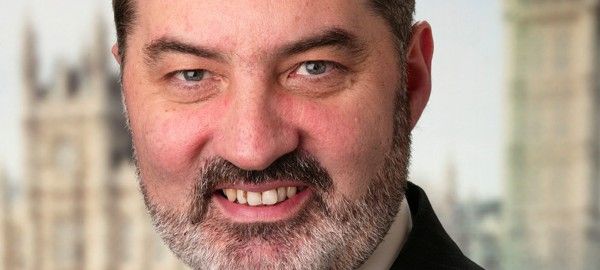
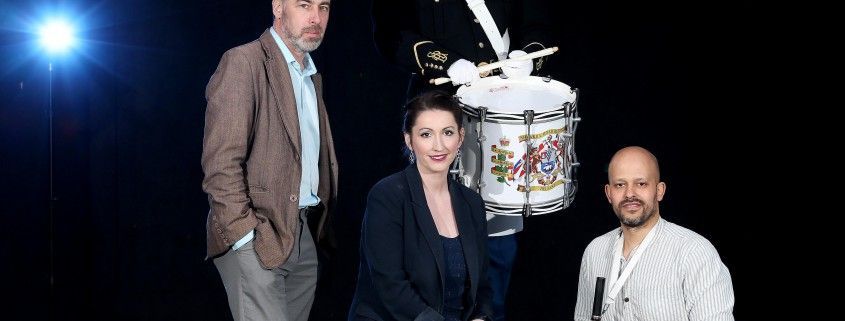
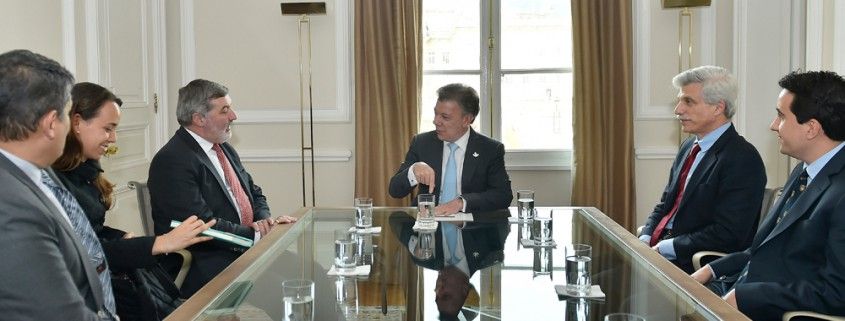
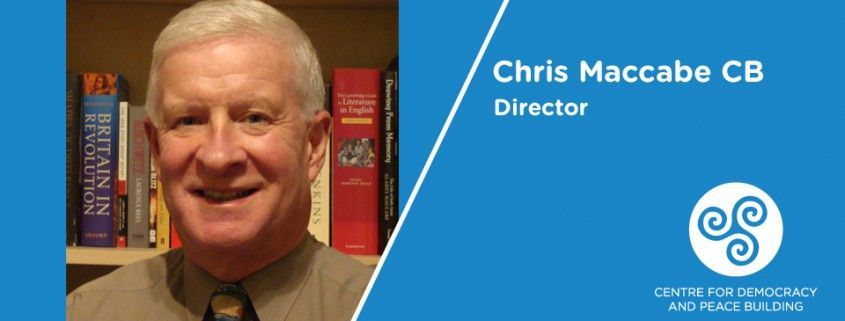
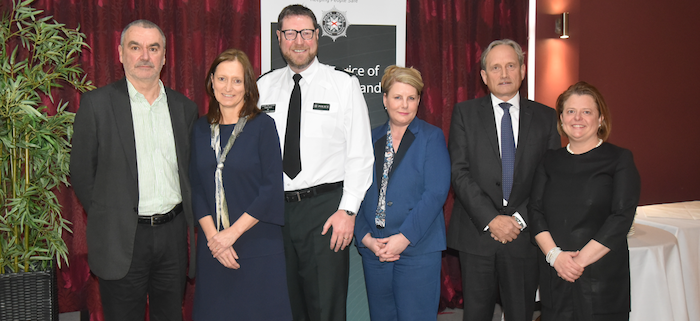

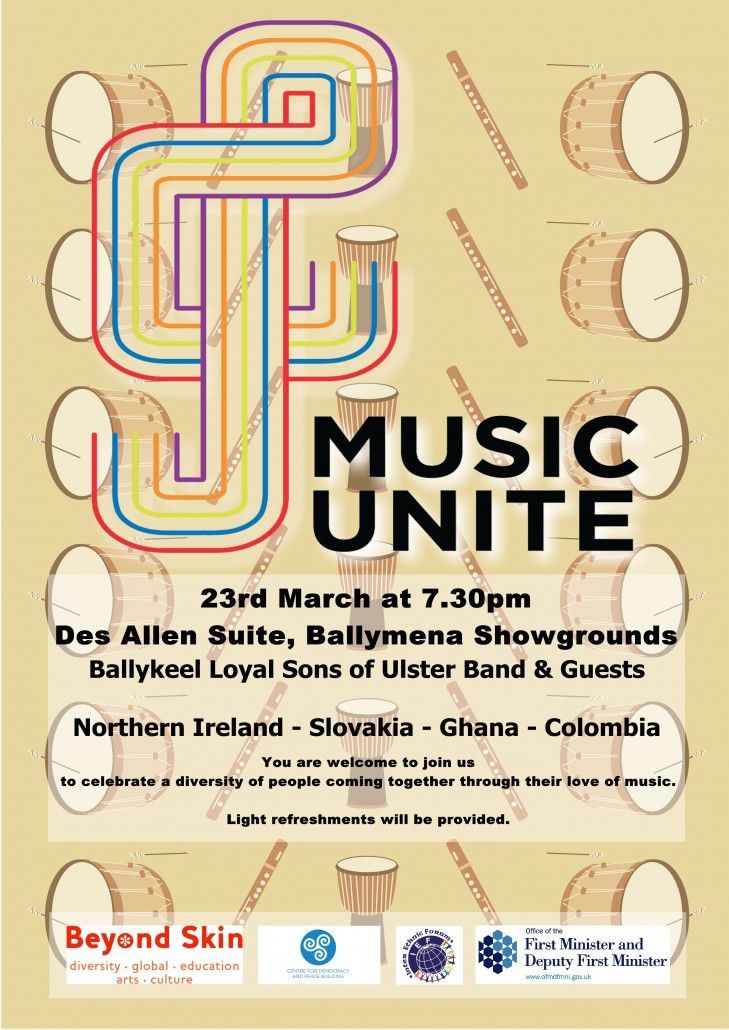
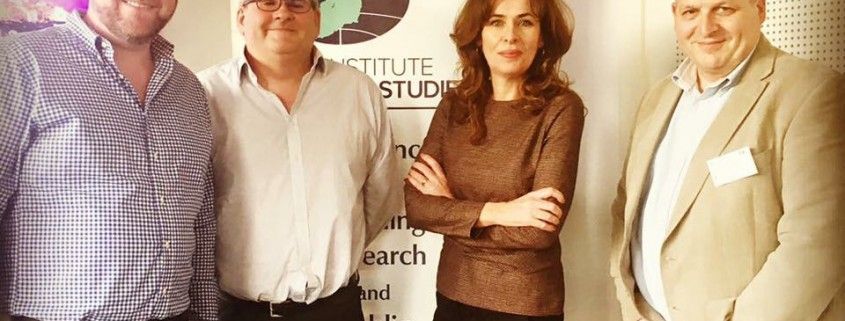
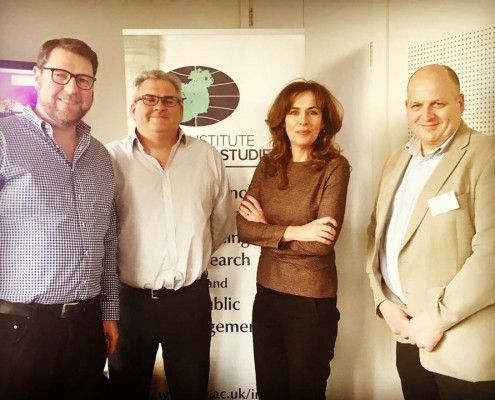 It was a pleasure to hear the insights of Assistant Chief Constable Stephen Martin, who discussed at length the importance, particularly in NI, of police building their cultural competencies and being constantly alert to the nuances of everything they say and do. This messaged was reiterated by Paul Giassani who highlighted the overlap with the PSNI and the Police Service in England and Wales and stressed that hostility exists in every society, the willingness of the state to deal with it is considered to be a key indicator of a thriving society.
It was a pleasure to hear the insights of Assistant Chief Constable Stephen Martin, who discussed at length the importance, particularly in NI, of police building their cultural competencies and being constantly alert to the nuances of everything they say and do. This messaged was reiterated by Paul Giassani who highlighted the overlap with the PSNI and the Police Service in England and Wales and stressed that hostility exists in every society, the willingness of the state to deal with it is considered to be a key indicator of a thriving society. 